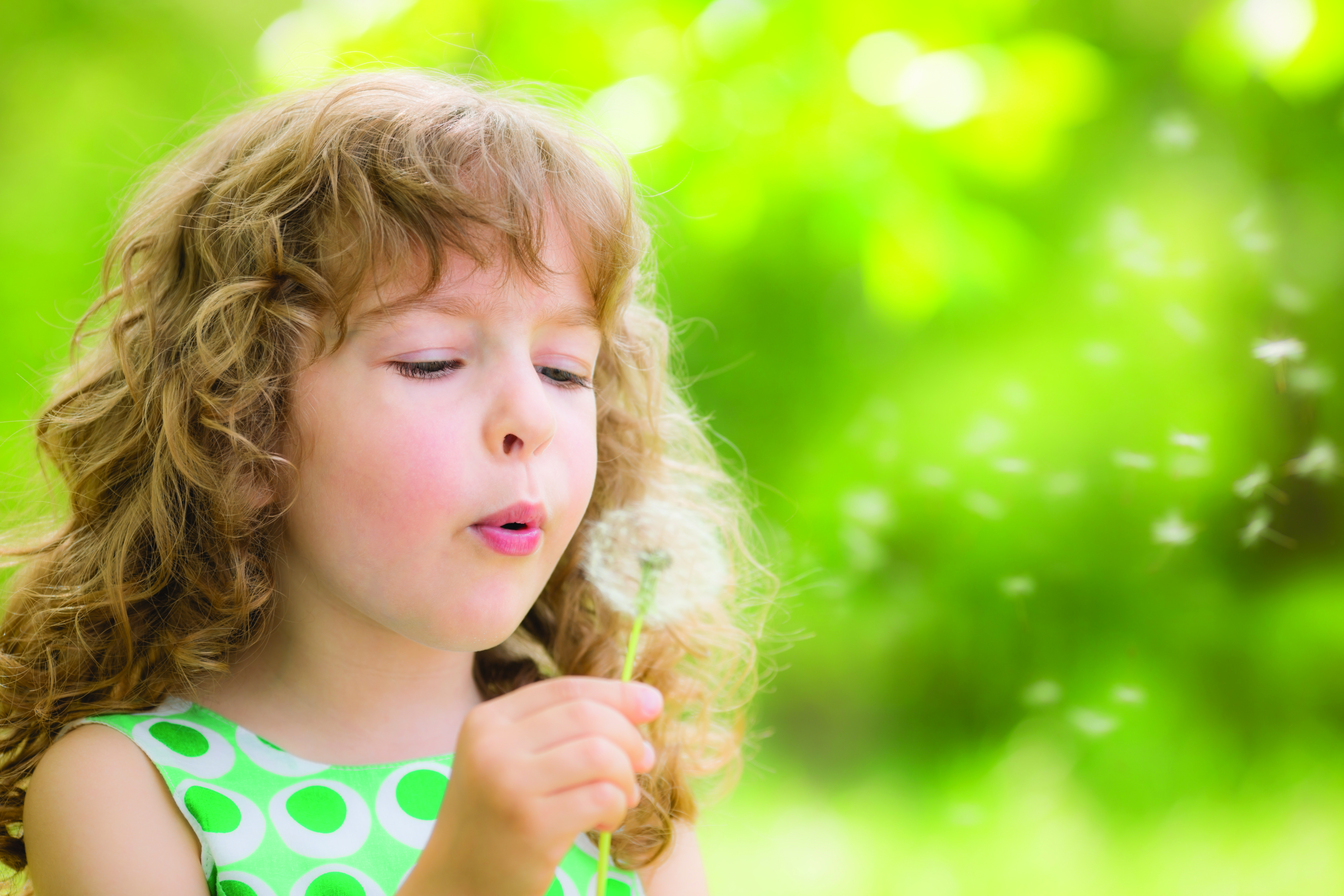Seasonal allergies, also known as allergic rhinitis, are an overreaction to substances that you breathe, causing an inflammatory response that affects the lining/mucus membranes of the nasal passages, sinuses, throat, eyes, Eustachian tubes and middle ear.
How Common are Seasonal Allergies?
According to the most recent US data (collected in 2012), seasonal allergies were reported in 9 percent of the pediatric population, and 7.5 percent of adults.
Outdoor seasonal allergies typically develop in children older than two years of age with the average onset occurring between four and six years of age. Indoor allergies can develop in children younger than two years of age. Seasonal allergies, on average, are diagnosed in children between eight and eleven years old. Having a personal or family history of other allergies (food), asthma, or eczema, increases the risk of developing seasonal allergies.
How Seasonal Allergies Affect Your Body
In susceptible people, the immune system overreacts to substances (allergens) that would not normally affect other people. Once the body recognizes the allergens as foreign, the immune system produces antibodies called Immunoglobulin E (IgE) that are specific for the allergen. Every time thereafter that the body is exposed to the allergen, the body makes IgE, which ultimately results in the release of inflammatory chemical mediators such as histamine, leukotrienes, prostaglandins, and cytokines. These inflammatory mediators then cause inflammation of the mucous membranes lining the nasal passages, sinuses, throat, eyes, Eustachian tubes, and middle ear, ultimately leading to typical allergy symptoms.
Seasonal Allergy Symptoms
While seasonal allergy symptoms can vary from person to person, typical symptoms include sneezing, itching (of nose, eyes, ears, and throat), runny nose, postnasal drip, sore throat, nasal congestion, headache, ear pain, watery eyes, red eyes, “allergic shiners,” and fatigue.
Allergy Causes
- Seasonal (highest pollen and mold counts are at night and early morning)
- Winter: None
- Spring: Grass pollen, tree pollen
- Summer: Ragweed, grass pollen, molds growing on leaves
- Fall: Ragweed, molds growing on leaves
- Perennial/ Year Round
- Pet dander (cats, dogs, furry animals and birds)
- Dust mites
- Cockroaches
- Molds growing on wallpaper, house plants, carpeting, and upholstery
- Feathers in pillows and down comforters (secondary to dust mite infestation)
Allergies can lead to Illness
Allergies can happen alone, but oftentimes will present in people who also have asthma (20%), and/ or eczema. When left untreated, allergy symptoms may lead to sinus infections, ear infections, chronic fatigue, mouth breathing, and sleep disturbance.
Diagnosis
Seasonal Allergies can be diagnosed by several methods. The two most are a skin test, and a blood test called RAST Testing, which measures levels of IgE and potential allergens.
Treatments
- Environmental control measures:
- Air purifier in the bedroom
- HEPA air filters on the furnace
- Vacuuming the bedroom often (and removal of carpeting)
- Dusting the bedroom often
- Laundering bed linens often, using the hottest water and dryer cycle possible
- Keeping windows and doors closed when the pollen count is high
- Using dust-mite proof mattress and pillow covers
- Medications
- Antihistamines
- Leukotriene antagonists
- Nasal decongestants
- Intranasal steroid spray
- Intranasal cromolyn spray
- Short courses of oral steroids
- Immunotherapy
- Allergy shots
- Sublingual, approved by the FDA in April of 2014 for adults and children over five years of age.
Natural Treatments
The approach to treating seasonal allergies successfully extends beyond controlling symptoms with medications designed to suppress the immune system. Not only is the immune system involved in seasonal allergies but the gastrointestinal system (GI) is thought to be as well. The GI houses more than 80% of the immune system. Optimal gut health is essential in maintaining optimal immune health. Inflammation of the gut may ultimately result in an overactive immune system, possibly contributing to allergies. Natural treatments include:
- Environmental control measures as above
- Neti-pot rinses: Add ¼ tsp of fine sea salt to 1 cup lukewarm sterile water and mix. Irrigate both nostrils daily.
- Identify and address potential food allergies/intolerances/sensitivities.
- Identify and address poor digestion: Suboptimal digestion may lead to increased inflammation of the gut, which may ultimately lead to an overactive immune system, possibly contributing to allergies.
- Support the gastrointestinal system:
- Eliminate potential food allergies/ intolerances/ sensitivities.
- Incorporate anti-inflammatory, nutrient-dense, and probiotic-rich foods into the diet, such as fermented foods and beverages, broths, healthy fats and oils, fiber, and antioxidant rich foods.
- Support the immune system:
- Foods high in antioxidants (Beta-carotene, Vitamin C, E, Zinc, Selenium), colorful fruits and vegetables, berries, greens, nuts, seeds, and whole grains.
- Probiotics
- Supplements:
- Vitamin C: Antihistamine activity
- Vitamin D: Low levels of Vitamin D have been found in patients with Allergic Rhinitis.
- Quercetin: this bioflavonoid (antioxidant), derived from onions, shallots, organic tomatoes, and many other fruits, vegetables, leaves and grains, has anti-histamine and anti-inflammatory properties.
- Butterbur (Petasites hybridus): herb with anti-inflammatory activity as well as research-based efficacy in treating seasonal allergies.
- Nettles (Urtica dioica): herb with anti-inflammatory activity.
- N-Acetylcysteine: an amino acid that has anti-oxidant, anti-inflammatory, and mucolytic activity.
- Local honey
- Homeopathics:
- Homeopathic Combination Allergy Remedies
- Individualized Homeopathic Remedy
Dr. Robin Russell is a Naturopathic Doctor specializing in Pediatrics and Women’s Health. She is Owner and a Physician at Natural Pediatric Medicine, LLC in Canaan, CT. Dr. Russell is also an Adjunct Faculty at the University of Bridgeport in their Masters of Nutrition program. She is a Board Member of the Connecticut Naturopathic Physicians Association as well as a Member of the Pediatric Association of Naturopathic Physicians. Dr. Russell graduated from Bastyr University in 2005 and opened her practice in the Seattle area later that same year. After practicing Primary Care in WA for almost 8 years, Dr. Russell and her husband decided to return to CT to raise their children near family.
